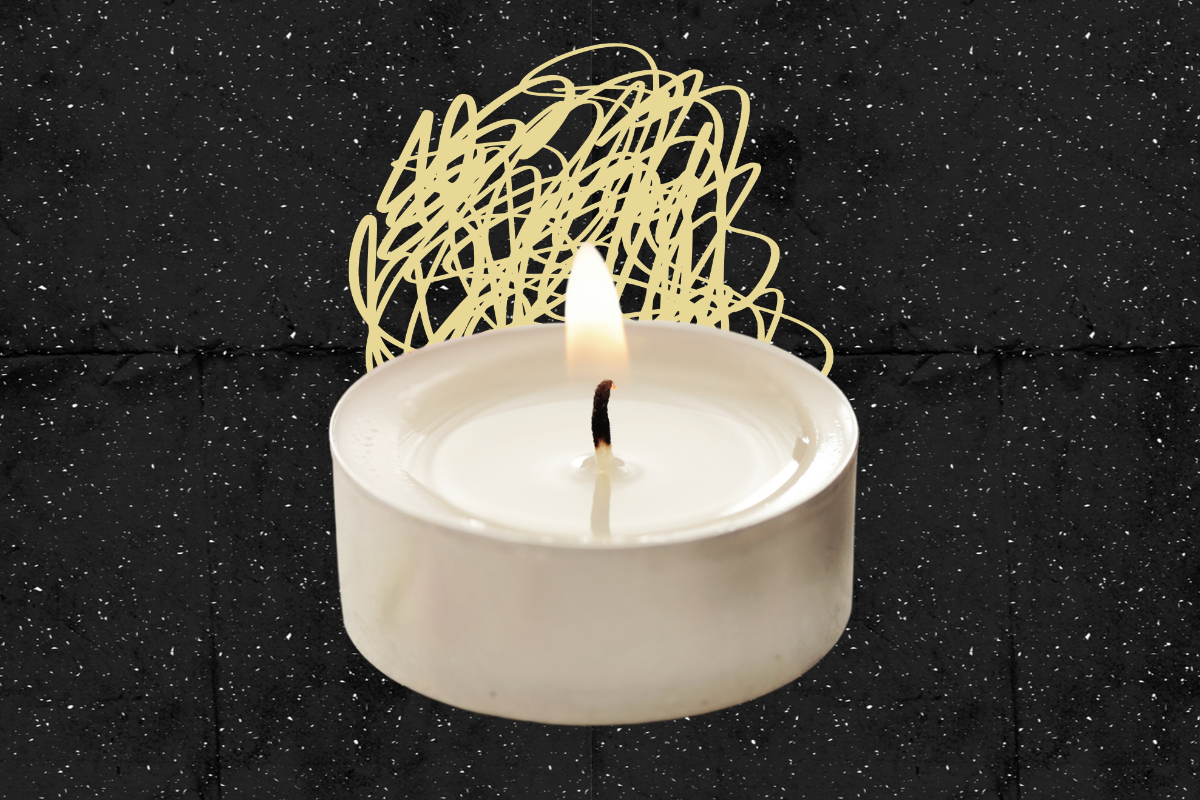My great-grandmother passed away five years ago, right at the tail end of spring. I remember sitting in her too-quiet apartment, helping with the dully painful task of sorting through her belongings, and getting distracted by the weather. I knew without a doubt that she would’ve been outside on her tiny balcony, lighting a cigarette despite the oxygen tank at her side and looking out at the green blossoming on the trees.
This year, I will light my first Yahrzeit candle in her memory. I don’t know if I’m doing the right thing.
My great-grandmother was a Baptist, raised on fire and brimstone. She was at peace at the end, knowing she’d go to heaven, but I had no such comfort. Religion was a fact of her life, not mine, not even after I converted to Judaism last year. I’ve never had much faith to put in anything, so I did my best to grieve on my own.
Still, it kept me up at night. I ran the infinite possibilities through my head, each worse than the last. What if she was somewhere cold? Somewhere dark? What if she didn’t exist at all anymore, and then I forgot her? What if I was already forgetting? I don’t think anyone has to have a religious tradition to mourn, but Judaism freed me from feeling like I had to scramble for an answer, or that there was an answer to begin with. Now I don’t have to believe that she’s in heaven, or that she’s nowhere, or that believing either of those things is more or less right. I just have to keep her with me, in all her messy glory.
The complicated part is exactly that: the mess. My great-grandmother was funny, particular, stubborn, quick to gossip and quicker to say she’d never. She loved “Maury” but drew the line at “Jerry Springer,” though I still sometimes caught her watching it. She was the first face I saw most mornings, watching me while my parents worked and taking me to school when I was old enough. She is so much a part of me that I couldn’t separate us if I tried.
She was not especially tolerant. I’d be surprised if she had ever knowingly met a Jewish person, much less if she’d have had anything good to say about them. It’s not that I’m worried that she’d be disappointed about my conversion, because I know she would be. I can see in my head, clear as day, the way she’d shake her head and twist up her mouth if I talked about it. I don’t want to make excuses for her, but I don’t want to write her off either. We were constantly going back and forth while she was living. She hated my dyed hair, my boyish clothes, and the lesbianism that she pretended I never told her about, but she loved me. It’s hard to know that we would argue about it, but it’s even harder to know that despite it all, she’d pull me close anyway, like she always did.
My entire conversion process has felt like coming home, like wandering up to a stranger’s table and finding a place set just for me. I don’t know how to make sense of the fact that it isn’t her home. So many aspects of my life are completely different than what she would have wanted for me, and I’m at peace with that, but religion feels somehow more personal. What does it mean to say blessings for her in a language she never heard? To light a candle whose name she couldn’t pronounce, to mark her passing with a tradition she’ll never get to know is mine now? How do you honor someone who couldn’t honor all of you?
I don’t know, and I don’t know that I ever really will. Her memory is a blessing in the most complicated sense of the word, something so real that it’s difficult to hold in its entirety. I know that she wouldn’t like me lighting a candle for her. It’s hard to know that we’ll never get to have that argument, that I’ll never get to watch the acceptance come over her face, even if she’d never admit it. But it will be easy to have a little flicker of her shining near me, to mark the Yahrzeit knowing that this is the path I’ve chosen for myself. Maybe that’s her stubbornness coming to life in me, eager to do it my way. Maybe it’s a chance to win her over one more time.



